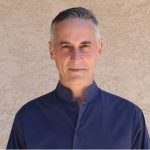Contributing writer for Wake Up World
To learn about spirituality, to become “spiritual,” you have to give up all you think is spiritual.
—from Spiritual Honesty
You don’t need a spiritual path. In fact, once you find one, you get in the way of what spirituality could have been.
Just becoming a fuller, more integrated human being, with the goal of clearing the backlogged pain in our hearts—usually from childhood—is enough. What often emerges from this experience is greater oneness and connection to all life—feeling more passion, joy, compassion and empathy. Sounds kinda “spiritual,” right? Yes, but no supernatural beliefs or spirits are needed, thus the quotation marks.
[pro_ad_display_adzone id=”110028″]
Whatever we think about spirituality is limited by our minds. So, what if we simply let go these imaginations and focus on removing what blocks the unnamed, uncontrived experience of living more fully? This is what’s called a via negativa path, which means experiencing something by which it is not. In this light, we don’t experience spirituality by reaching for it, via a belief system, but by clearing what impedes it from emanating from us. That’s why once you reach for spirituality, you get in its way.
We uncover and become this best version of ourselves by way of serious inner work, without reaching for the light. We let this figurative light shine from us (as our best selves) merely by clearing the pain and trauma that blocks it. This is spirituality by negation, and in my experience, a more organic and authentic experience of what we call “spirituality,” which I’d like to instead call becoming more fully human.
After all, we are humans having a spiritual experience. Better yet, we are humans having what we call a spiritual experience.
Many who don’t tend to their heartaches and trauma, often seek spirituality directly—by grasping for light—which simply lumps superficial beliefs and feel-good experiences on top of trauma and pain. This is a form of what’s called spiritual bypassing. Sort of like applying a fresh coat of paint to a brittle and crumbling old coat. It doesn’t stick so well, because the pain eventually bleeds through, often in the form of hurting others. Untended pain lumped over with spiritual beliefs merely covers and represses the wound, which eventually lashes out. But when we work directly to clear our pain, we indirectly practice “spirituality, because we clear what has been obscuring our natural brilliance.” I allude to this process in my poem “Something More than Happiness”:
Clearing the clouds, effortlessly the sun gives its light.
Fix the Mess of Your Life
When we’re concerned merely with being human, we find there is plenty of ordinary hard work—to uncover, integrate, and manage—without super-imposing an esoteric, disembodied belief system onto our tender hearts and minds. In fact, to heal the wounds of trauma, we must do the opposite. We must embody.
When you stop believing in things that are unevidenced and are less likely true, you are left with the mess of your humanness. That’s your “spiritual path,” but calling it spiritual is silly, again, because no spirits are involved. It’s more a matter of being on purpose to clean up the mess and hurt of your life the best you can—hands-on, in the trenches, without magical thinking, and hopefully with some fellow humans, animal companions, whispering trees, and flowing brooks to accompany you.
Everyone’s life is a mess and challenging to some degree. So you’re not alone. As my friend Erin Pillman says: “It’s really difficult being human, and there are really no exceptions.” Our backwards culture of financial stress and gross inequality just add to the mess of our already-fractured hearts. Generational trauma and unique hardwired deficits (nature) are compounded by wounded parents, societal injustice, and bad luck.
All this is more grist than we could ever need for a spiritual human path towards less suffering. Yet, because it’s so difficult and daunting, scarcely anyone tends to their deep pain. And most don’t even know that a different path to feel good, worthy, and a sense of belonging is possible. Many also lack the resources for the right kind of help. And good help is scarce. It’s easier to want to ascend into the ethers and imagination where we can believe whatever we want; the problem with this is that our buried pain does just evaporate; it continues to hurt us. It’s tougher to go down into the body, where the mess and confusion is. But this path addresses our distress at its root and cleans the slate of our heart and mind.
The less you believe in make-believe and the more you follow a unilateral drive for fun and feel-good, the more you will be confronted with plain old, truly ugly things. And that’s where you want to be to have any chance at healing the mess of your life. But people would rather ignore their wounds, hurts, and shadow and focus primarily on happy things, as if the past can be forgotten and made inert (it can’t unless we heal it to any degree).
Focus on Unhappy
If you’ve never really felt good in your life, or not often enough, then following bliss and false spiritual beliefs can be transformative to feel a sense of joy. But you can’t stay there if you want an enduring, grounded, embodied experience of feeling good and being alive without a bunch of practices and supernatural beliefs.
So, some happy is good as long as you eventually turn it towards what hurts, so that you make that dark conscious. This is to use light to make more light and love. Barring this, you end up using bliss practices as a defense, which compounds the fear of facing your brokenness, which needs your full, loving attention and embrace to heal, which means dropping into your deep body—because there is something much more rewarding than happiness, which is fulfillment.
My experience is that tending to what is unhappy inside me, I became happier than ever. I told my story about it here. Deep happiness, and heck, even superficial happiness, arrived for me by facing and being transformed by my unhappiness (pain). So, if you’ve hit a wall and become disillusioned by bliss and other superficial practices, consider focusing your light of awareness on unhappiness in order to evolve into a deeper, naturally arising happiness. This is also good practice for being with other people’s unhappiness in order to help them heal through it.
Forget about Gods
So, to hell with “spirituality” that distracts and detracts from our embodied humanness. It’s just religion in different clothes, full of the same false hope, shadow denial and projection, hypocrisy, body-denial, cowering from darkness, and avoidance of pain and material reality, which lead to more suffering and a more broken world. For, when we divorce from our bodies and its wounds, we divorce from the earth and the people around us. We live in a bubble, while what sustains us yearns for our connection.
Much of spirituality disavows what truly matters for most of us at the end of the day, especially for those without privilege and living in survival hell of some kind. But again, if they, or you, have no real options, are at the end of a rope, and need to believe in false things to have any experience of happiness or hope, all the power to you. But, if you have the means to face your untended heartaches to any degree, you owe it to yourself and to those who don’t.
Forget the gods, spirits, and angels that don’t exist. Even if there is an afterlife, what problem does it fix here while alive? Maybe it alleviates some overwhelming heartache or fear of death and that this shitty reality is all there is. But this is to live in fear of fear, and the only way to make it better for anyone is to face what hurts. If you aren’t pinned to a survival wall, consider gathering your courage and giving up false beliefs to work out your trauma. There are many resources at the links throughout this essay to help you.
So, just be human, and don’t focus on trying to be more and more happy in a linear sense. Think Yin and Yang, the circle and cycle of life from birth unto death unto rebirth, which is genuine transformation. Focus on what gets in the way of the unbidden joy underneath all the crap you’ve been hit with and lumped onto your life. Unleashing that brilliance beneath and within your own pain and confusion is already connected to everything else; it’s already “spiritual.” So you don’t have to try to be spiritual.
Embody
When you do that inner work, which we can call an “embodied spirituality,” you bridge disembodied pursuits with ordinary human ones in your own body. Because your body is connected to all other bodies, including the earth, you become an earth citizen, a warrior for everyday justice. To become this deeply united, feeling the pain that your body has stored from the past and releasing it, along with the attached negative beliefs, is key. This can help you become boundlessly happy with very little, because you have cleared your heart (emotional body). Eventually, you might get bored of your happiness, and your calling in life might change primarily from self-enjoyment to helping others find some sustainable happiness. This is why I think activism is the pinnacle of spirituality.
Since deep, somatic joy is born from dissolving the pain within, it’s also wed to the deep, persistent compassion you’ve had to practice day in and day out to heal your own heart. This means your happiness will be of service, not merely a self-improvement project (though it will likely be this before you are reborn from your pain, and that’s all good). In other words, it means you can become so unbiddenly joyous you will be able to witness and empathize with the suffering of others, and this conjoining will allow you to help them heal in the same way that staying with your own pain showed you how to do in the step-by-step, moment-by-moment, path to your own liberation from suffering.
The irony is that “spirituality” by way of leaving and rising above the body as spiritual bypassing isn’t ultimately healing, and your magical beliefs can’t make it so. Letting go of disembodied spirituality promises healing because it drops you into your embodied self, into the mess of your life, where you can begin to clean up your trauma and pain, instead of ignoring it and continuing to hurt others—remember, hurt people hurt others.
If you persevere through this death and rebirth, you can help others in essential and realistic ways because you’re living in accord with what’s immediately real and true as you experience it, not with a fantasy.
Facing What’s True
Too often the fantasy of spirituality is used as a path of feel-good untruth, to distract from what is painfully true. Abiding what is true is what matters at the end of the day—again, unless you have no other option but to cling to false hope. Just make sure your false hope (that can be let go) isn’t perpetuating your misery. This said, believing what is most likely false may be necessary for a time, just as we need painkillers sometimes. But eventually, it’s empowering to learn we can tolerate the pain, even great pain, and discover it as a hidden path to deep joy. It’s not just empowering, but life-changing, when we can stop running from the pain that fuels our fear.
If this pain is too great, try to face it little by little. And if it’s still too great, then at least you tried, you have faced the truth, and there’s no shame in believing in whatever you need to “get through the night.” It’s just that most people never face their pain. They are simply repulsed by it, or have no sense how to work with it. They unconsciously, and even innocently, knee jerk from it, seeking easy pleasure to get away from it. But that pain never goes away; it affects all aspects of our lives and bleeds into every relationship. It gnaws at the psyche, or sabotages your life over and over, until it’s relieved.
Every time we let go of what is more likely untrue and ultimately unhelpful, we make room for what is more likely true and helpful. Living in accord with reality creates people who can positively affect that reality. Just like making a proper medical diagnosis allows a healer to address a problem and effect relief. It’s mighty courageous to face reality, to face the mess of our lives and of humanity. I’ve found it can’t be done without support and the providence of good people to hold us while we, and parts of the world, fall apart . . . in order to, with any luck and hard work, be rebuilt. That’s transformation.
By the way, this essay on How to Determine What is Most Likely True is a must read.
The Cure in The Wound
May we all tend to our pain, to what we hold in disavowal, to become more genuinely and sustainably happier and fulfilled. This way, we may have enough to overflow to others and cease perpetuating generational trauma. This fulfillment replenishes itself because, like a spring, we’ve cracked the ground deep inside ourselves to access what continues to nourish us—and no it’s not spirit! It’s our ordinary human resourcefulness, supported by other ordinary humans and the natural world.
This way, we can hold and share both tender and fierce compassion for others to face their pain and be transformed and renewed by it. If you want to call this a spiritual path, go ahead. But no spirits are involved, and magical thinking just gets in the way.
We need a new term for the kind of spirituality that is devoid of what’s most likely untrue. We need a phrase for just being human with a heart cracked-open and eventually healed enough to compassionately join the body of the world. For starters, let’s call it becoming more fully human. It’s the embodiment path of becoming a good, wild, creative, intelligent, passionate and compassionate person, which I gave a presentation about here. Like the alchemists said, the cure is in the wound. I’ll meet you there.
With love, Jack
Recommended articles by Jack Adam Weber:
- Trauma Bonding: Why It’s So Tough to Leave An Abusive Relationship
- Heartache and the Myth of Letting Go
- Train Wreck Relationships: Why We Choose Lovers Who Destroy Us and How To Heal
- Coronavirus Holistic Medicine Protocol
- The Modern Shaman: Fierce Love at the Frontier of Madness
- When We Love an Addict – Courage and the Limits of Compassion
- Sex – Truth and Dare, Pleasure and Purpose
- Relationships: The Costs of Staying When We Should Leave
- Yin Yang — Ancient Wisdom for Personal and Planetary Transformation
- Grief-Work: Healing the Shadows of Trauma and Pain
- Do We Really Create Our Own Reality? The Myths and Dangers of New Age Belief
About the author:
 Jack Adam Weber, L.Ac., is a licensed Chinese medicine clinician with over 20 years of experience working with patients. He is also a life coach, climate activist, organic farmer, artist, and celebrated poet. Jack has authored hundreds of articles, thousands of poems, and several books. His most recent creation is Climate Cure: Heal Yourself to Heal the Planet, a comprehensive guide to help navigate all manner of crisis.
Jack Adam Weber, L.Ac., is a licensed Chinese medicine clinician with over 20 years of experience working with patients. He is also a life coach, climate activist, organic farmer, artist, and celebrated poet. Jack has authored hundreds of articles, thousands of poems, and several books. His most recent creation is Climate Cure: Heal Yourself to Heal the Planet, a comprehensive guide to help navigate all manner of crisis.
Jack is an advocate for embodied spirituality and writes extensively on the subjects of holistic medicine, emotional depth work, mind-body integration, and climate crisis, while encouraging his readers to think critically, feel deeply, and act boldly. He also developed the Nourish Practice, a deeply restorative, somatic meditation practice that doubles as an educational guide for healing through the wounds of childhood. His work and contacts can be found at jackadamweber.com.
[pro_ad_display_adzone id=”110027″]







